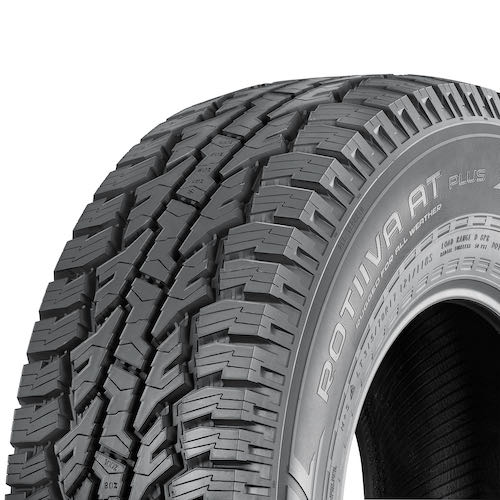All-season tires as well as all-weather tires are tires made for all year-round use. What sets them apart is that the all-weather tires hold the “Three Peak Mountain Snowflake” emblem indicating that these tires have met the required performance criteria in snow testing and are considered severe snow service rated. All-season tires on the other hand are not snow service rated. The name “all-season tires” is somewhat of a misnomer as they are not rated for use in winter or at least not for snow and ice. The all-season tires are therefore not recommended in areas with severe winter conditions.
The first thing to consider when choosing between all-season or all-weather tires is what weather conditions you have in the area where you reside. If the area where you live has mild all year-round weather, then the all-season tires are an option and probably the better choice as they have lower rolling resistance and thereby better fuel economy. All-season tires do not need to have as aggressive tread as all-weather tires as they do not need to meet the criteria for performance testing on snow. All season tires in general offer excellent wet grip and stability while allowing for both comfort and performance in an environmentally friendly tire. They also offer good hydroplaning protection and some even have a hydroplaning indicator.
If the area where you live has severe winter conditions, then probably the all-weather tires are a better choice. This also allows for a safer transition in and out of winter conditions. Allowing you to be prepared for the first snow fall as well as rapid melting of snow in the spring leaving the asphalt bare. It is because the all-weather tires hold the same severe service rating as winter tires that you can keep them on all year-round, even in the winter.
Whether choosing all-weather tires or all-season tires you need to respect the manufacturer’s recommended size tire for your make and model of car. Whether the choice is to invest in all-weather tires or all-season tires the dimensions need to be those recommended by the car manufacturer. This means if the recommended dimensions are 215/70R16 then you would need to equip your car with either 215/70R16 all-season tires or 215/70R16 all-weather tires. In general, as long as you install the correct dimension tires for your vehicle’s make and model then you are well equipped to handle any road conditions no matter what the forecast.
When looking for tires you need to take into consideration the weather where you live as which year-round tire to choose depends on the climate in the area where you live. The all-weather tires are a good choice for people looking to keep one set of tires throughout the year but yet live in an area where the winters requires adequate tires to deal with snow and ice. Whereas the all-season tires are an excellent choice for people living in areas with mild weather throughout the year.
For more information regarding all-weather tires, visit: https://www.nokiantires.com
